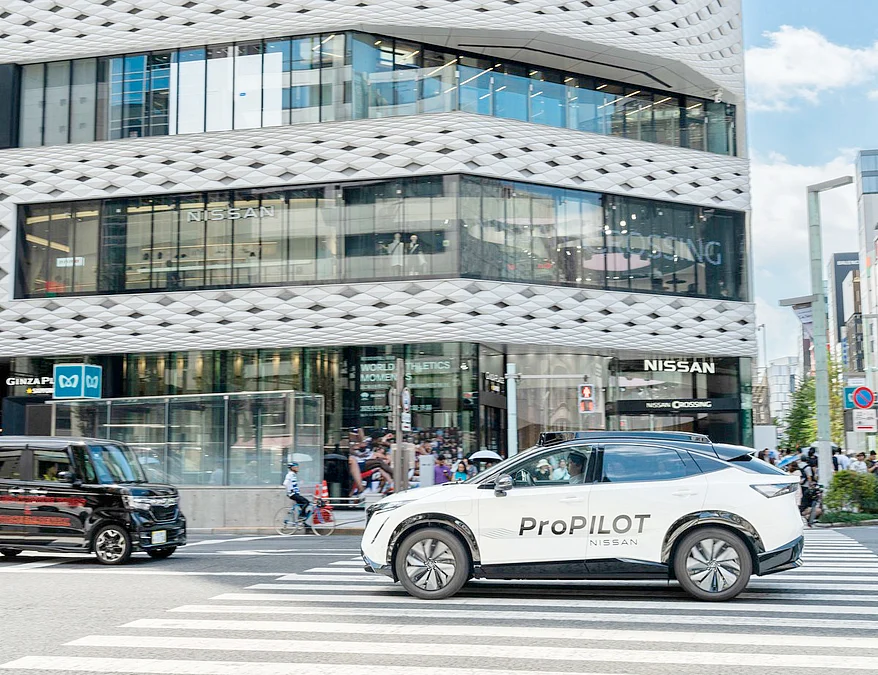
Nissan is preparing to roll out the next version of its ProPilot driver-assist system, this time powered by artificial intelligence. The company says the upgraded technology, set to arrive on select models in Japan during fiscal year 2027, will be able to handle far more complicated driving situations than its current setup.The new system is built on two key components: Wayve’s AI Driver software from the UK and Nissan’s own “Ground Truth Perception” technology that makes use of a next-generation LiDAR unit. Together, they aim to deliver smoother, safer driving, especially in places where today’s systems struggle most, busy city streets.. To prove the point, Nissan put the tech in a fleet of Ariya prototypes and sent them out onto the roads of central Tokyo. Equipped with 11 cameras, five radars, and a roof-mounted LiDAR sensor, the cars navigated narrow streets, avoided parked vehicles, yielded to pedestrians, and even anticipated cyclists sneaking in from the wrong side of the road.Unlike traditional systems that rely on fixed rules, Wayve’s AI is designed to learn from its surroundings and make decisions much like a human driver would. It doesn’t just react to objects one by one but interprets the entire scene, predicting how traffic might evolve and adjusting accordingly. The AI also reacts quickly to sudden changes, like a pedestrian stepping off the curb or a car cutting across lanes.Nissan says this human-like decision-making is what will set the next-generation ProPilot apart. Current versions of ProPilot are mostly limited to highway use, with the 2.0 system capable of multi-lane assistance. The new one is designed to extend that support to complex urban settings, where unpredictability is the norm.“Our current ProPilot 2.0 system has been well received, but Nissan’s next-generation ProPilot technology will bring even more innovative features and deliver the feeling that a skilled human driver is behind the wheel,” Eiichi Akashi, Nissan chief technology officer, said. “It will adapt to more complex traffic conditions and truly provide greater confidence and peace of mind, enhancing safety not only for the driver, but for everyone using the road.”Safety remains at the core of the update. The LiDAR unit, in particular, offers an extra layer of reliability since it can detect objects at longer distances and in low-light conditions, areas where cameras and radar can fall short. This makes it especially valuable for nighttime and high-speed driving.For Nissan, the push isn’t just about keeping pace with rivals like Tesla but also about showing its own approach to the future of mobility. By combining AI decision-making with advanced sensing hardware, the automaker hopes to create a system that drivers can trust not only on highways but also in the unpredictable world of city driving.The company confirmed that the next-generation ProPilot will debut first in Japan, starting with select production models in FY27, before eventually expanding to other markets.



